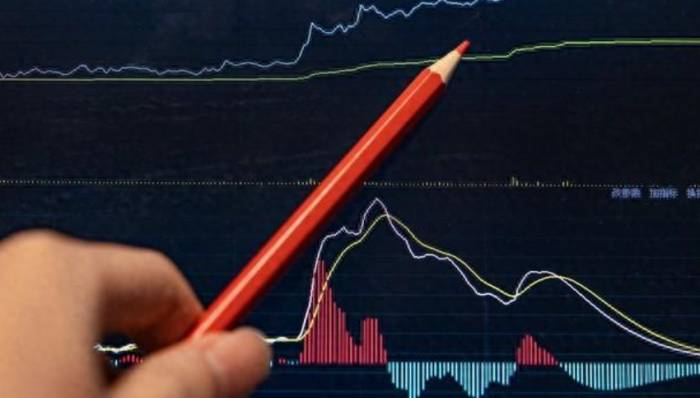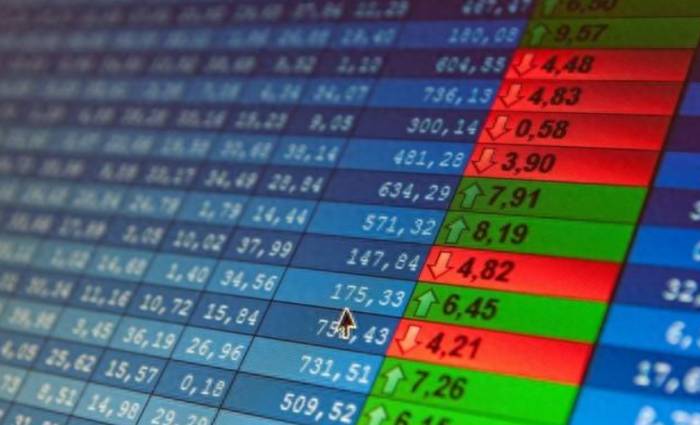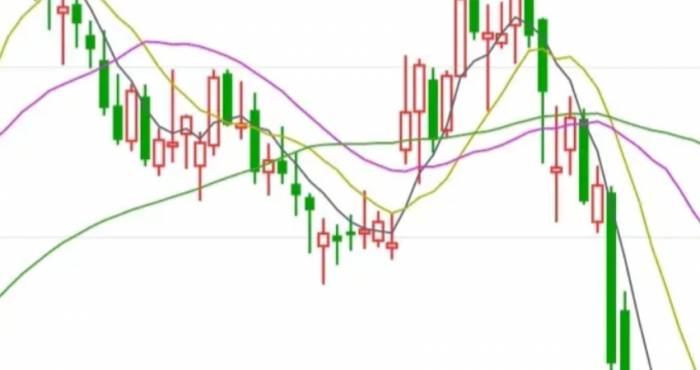Stock trading indeed cannot be separated from luck.
Many retail investors firmly believe that there is a difference between stock trading and gambling or buying lottery tickets. They believe that there is a method to stock trading, while gambling and lottery tickets rely purely on luck.
The method of stock trading mainly relies on the rules of stock trading. Mastering the rules of stock trading is almost like being on the path to profit.
Gambling and lottery tickets also have rules, but they are difficult for ordinary people to grasp. Only a very few people with special abilities can master the rules.
In comparison, the rules of stock trading are not so extremely demanding, and ordinary people also have the possibility of making a profit through stock trading.
There are always two sides to things. Although stock trading has a certain method, it still cannot be separated from the assistance of luck. Luck may not be the most important factor in stock trading, but its impact cannot be completely ignored.
Who can avoid making mistakes in stock trading? Who can make every trade without a loss? Even Warren Buffett has seen huge losses of tens of billions of dollars, how can retail investors make a profit every time?
Retail investors use appropriate methods to reduce the impact of luck on stock trading, striving to lose less money when luck is not good, and make more money when luck is good.
Stock trading is a long-term process, and a single transaction cannot determine the overall profit or loss of retail investors. Retail investors need to achieve the goal of overall profit through multiple transactions over a long period of time.
The rule of stock trading is to buy low and sell high. How to master this rule depends on the accumulation of retail investors, and it cannot be mastered overnight.The method of stock trading is a comprehensive trading system. In addition to mastering the rules, it also requires capital management, stop-loss and profit-taking mechanisms, and mental adjustment, etc.
Simply put, before mastering the rules, invest less, stop losses early, avoid greed, and maintain a good attitude.
I. The Law of Probability Does Not Exclude the Role of Luck
Probability theory tells us that in the matter of stock investment, only by acknowledging the existence of luck can you be considered as having stepped into the threshold of the mature investor club.
Even most of our life decisions involve hidden information and are more influenced by luck.
Just like flipping a coin, the probability of getting heads or tails is 50%.
However, even knowing the 50% probability, we still cannot predict whether it will be heads or tails when flipping the coin next time.
It may be heads up for 10 consecutive times, or not at all.
II. The Luck of History and HeroesThe world is filled with luck and chance.
We should even be grateful to exist in this world, because we are undoubtedly the lucky ones among countless competitors.
The history we have gone through also owes thanks to luck, as it is just one of the countless possibilities and paths.
Many major events are entirely determined by some accidental and insignificant things.
Since ancient times, people have always wanted to change the world, change others, especially the kings and emperors.
But they found out that history is nothing more than a trivial appendix on the body of the world, a kind of arrogant and laughable declaration created after people thought they were the masters of the world.
At every node, there are countless possibilities, so there is that nonsense saying "Heaven wants me to perish, not the fault of the war."
Isn't it ridiculous? People only think of the world not being controlled by them when they are in a desperate situation, and there is an irresistible force called: luck...
III. With luck, monkeys can also become great economic prophets.
It can be said that historical records are not a good indicator of future events, because luck often plays a role.Let's examine how 1000 monkeys have given birth to an uncannily accurate soothsayer.
Suppose there is a room with 1000 monkeys, each trying to predict the direction of interest rates (either up or down).
After 10 predictions, one monkey has an impeccable record in predicting changes in interest rates.
It is regarded as a genius and the greatest economist in history, even if it is just a matter of luck.
In fact, as long as there is a sufficiently large group of predictors, in this process of prediction that involves luck, there will eventually be someone who can predict all interest rate changes correctly, becoming the object of media pursuit and the hero of the stars.
Sometimes we only see the dazzling performers.
Part of the reason is that the winners always have the nature to show off (1 monkey), while the losers (999 monkeys) are very quiet.
If there are winners in a large population base, we should not be surprised, just as we find 10 geniuses among 10,000 monkeys.
When measuring performance, we must consider both the number of successful people (1 monkey) and the number of failures (999 monkeys), as well as the total number of the reference group (1000 monkeys).
In such luck-related events, the more people involved, the more likely the outstanding performance is due to the help of luck and opportunity.For, as long as the probability of occurrence is high enough, anything can happen.
IV. Science Should Be Grateful for Luck
Scientists around the world acknowledge that knowledge is often produced in accidental scientific research.
However, scientists spend a lot of money year after year on various experiments, dedicating a great deal of effort and time, but the research results and effectiveness are always minimal.
Nowadays, there are 33 million various types of technical patents in the United States, of which only a very small part has come out of the laboratory and entered the market, and among these technologies that have entered the market, 80% will fail.
It can be said that technological innovation seems to occur suddenly, and the ones most likely to develop into new technologies usually do not come to fruition.
This is because the path of technological progress is full of uncertainty and is hindered by unknown things, deadlocks, and dead ends, with only occasional unexpected luck making it clear.
In 2012, an article published in the media stated that in addition to the 2006 Nobel Prize in Physics awarded for the discovery of anisotropy in the cosmic microwave background radiation, the initial research purposes of other Nobel Prizes in Physics in astronomy and the final awarded astronomical inventions are obviously different, most of them have no relation, and even completely opposite.
The article stated, "That is to say, the acquisition of most major astronomical observation results seems to rely on chance and luck."
Even from a historical perspective, the development of science and technology by mankind is quite accidental, and science and technology are not necessarily developed, in fact, mankind almost did not develop science and technology.Like America, which developed independently for a long time, there was no sign before its discovery that it could develop science and technology.
Luck is not everything.
Undoubtedly, making a continuous profit in stock trading depends on strength rather than luck. Luck can make you temporarily earn money, but it cannot make you continuously and stably profitable. In the stock market, the changes in the market are unpredictable. If you enter the market at a certain point and step on the right rhythm, it will make the stocks you buy rise, and you will have a good return in a few days. If you hold a heavy position, you can also gain more profits, making people think that stock trading is so simple and easy. However, the market changes in the stock market are unpredictable. If you stay in the stock market for a long time, you will always encounter a time when the market is against you everywhere. At this time, the stocks you buy keep falling, and the stocks you sell keep rising, and your luck is gone. The money you earned before is likely to be lost.
Many people think it is entirely due to luck because:
1. Wrong cognition: Stocks must be sold only after making a profit, otherwise continue to hold;
Everyone invests in the stock market with a very clear purpose, which is to make money in this market. Therefore, holding on to profits is the foundation of making a profit in stock trading. If you cannot do this, then achieving stable profits is basically out of the question for you.
There is a problem with the wrong cognition here, which is that you must make a profit after buying a stock, and this logic is wrong. This is because:
1. In the game of the stock market, as small and medium investors, we are always in a passive position. We cannot control the rise or fall of stock prices, and we do not have the qualification to compete with those institutions with huge amounts of capital in the market.
2. As passive investors, we are the weak in the market. The only thing we can do to survive and make a profit in this market is to follow, that is, to follow the market strong people who have control and influence over stock prices, such as large institutions, hot money, and other strong people with huge capital and stock operation strength. Because, as long as small and medium investors participate in this market game, as soon as they enter this market, they are equivalent to competing with those financial sharks for the redistribution of wealth. The stock market is a zero-sum game rule. The money you earn must be someone else's loss. You can see the annual profit data of those funds, private equity, and large financial institutions, and you will understand where their profits come from? All of them are the losses of investors participating in this market game!3. The sole criterion for determining whether a stock will rise is whether it follows the operational rhythm of the market's main capital, rather than the belief that long-term holding will definitely yield profits. This is exemplified by the case of China National Petroleum Corporation (CNPC), whose stock was initially listed at 48 yuan, and after holding it for 13 years, it is now worth less than 5 yuan. There are numerous such cases, including delisted companies and those labeled with ST (Special Treatment).
II. Lack of Confidence;
Earning profits in the stock market stems from strength, and confidence is a manifestation of strength.
Confidence comes from strength:
The lack of operational technical ability, for many friends who are still lacking experience and are still exploring technical analysis, there is already a great lack of confidence. This lack of confidence is the confusion in operation, the analysis of stocks, and the unclear intentions of the main force operating this stock, which makes it impossible to make an objective judgment, and it is the result of the emptiness of strength.
Many friends often say, "I originally bought this stock, but later because I was worried about the market being bad, I sold it, and as a result, it soared later." In fact, you should never feel that this is a matter of regret and regret, because in the final analysis, it is still a lack of technical confidence. The lack of confidence in trading is another important reason for not being able to hold on to profits.
Many friends have also learned a lot of operational techniques and read many books. In fact, I think the simpler the technology, the more effective it is. Stock market investment is not about becoming a winner by reading a few books, listening to a few lessons, and participating in a few training sessions.
Strength is more reflected in the theory, reflected in the market dynamics, and is to have enough coping strategies in the face of market changes. These are formed gradually through long-term honing in the market and sublimation in trading. Jack Ma once said a word, "You can copy my model, but you can't copy my experience," which is still classic for company investors. Confidence comes from the accumulation of knowledge and experience.
Therefore, enhancing strength is the most effective means to enhance confidence.
III. The inability to hold on to profits is the psychology of being unwilling to bear risks;The intention of investors to sell profitable stocks is far greater than the intention to sell stocks at a loss, which is a psychological issue of not being able to hold on to profits.
When most people are in a state of profit, they tend to be cautious and unwilling to take risks, preferring to take profits when the opportunity arises, fearing the loss of existing profits. That is, when in a state of profit, most people are unwilling to take risks. Most people will choose the profits that have been determined. As is often said, "take profits when the opportunity arises" and "secure the profits in the bag."
In stock operations, many investors have a strong tendency to take profits, preferring to sell stocks that are making money. Most people's performance is "drag when wrong, leave when win," unwilling to take risks, it is precisely this mentality, in the stock market, the intention of investors to sell profitable stocks is far greater than the intention to sell stocks at a loss, which is contrary to the core investment concept of "let profits run when doing the right thing, and cut losses when doing the wrong thing."
Therefore, if stock trading is short-term operation, it depends on luck, but if it is long-term operation, if you want to make a lot of money, you need to cultivate your mentality, and also need to persist for a long time, to ensure that you do not make any fatal mistakes in the stock market, then you are one of the few winners in the stock market. Stock trading is a war with oneself.
Thank you for the companionship of like-minded people all the way, always committed to sharing useful knowledge, more knowledge content is in the stock market breeze, welcome to learn together!





























